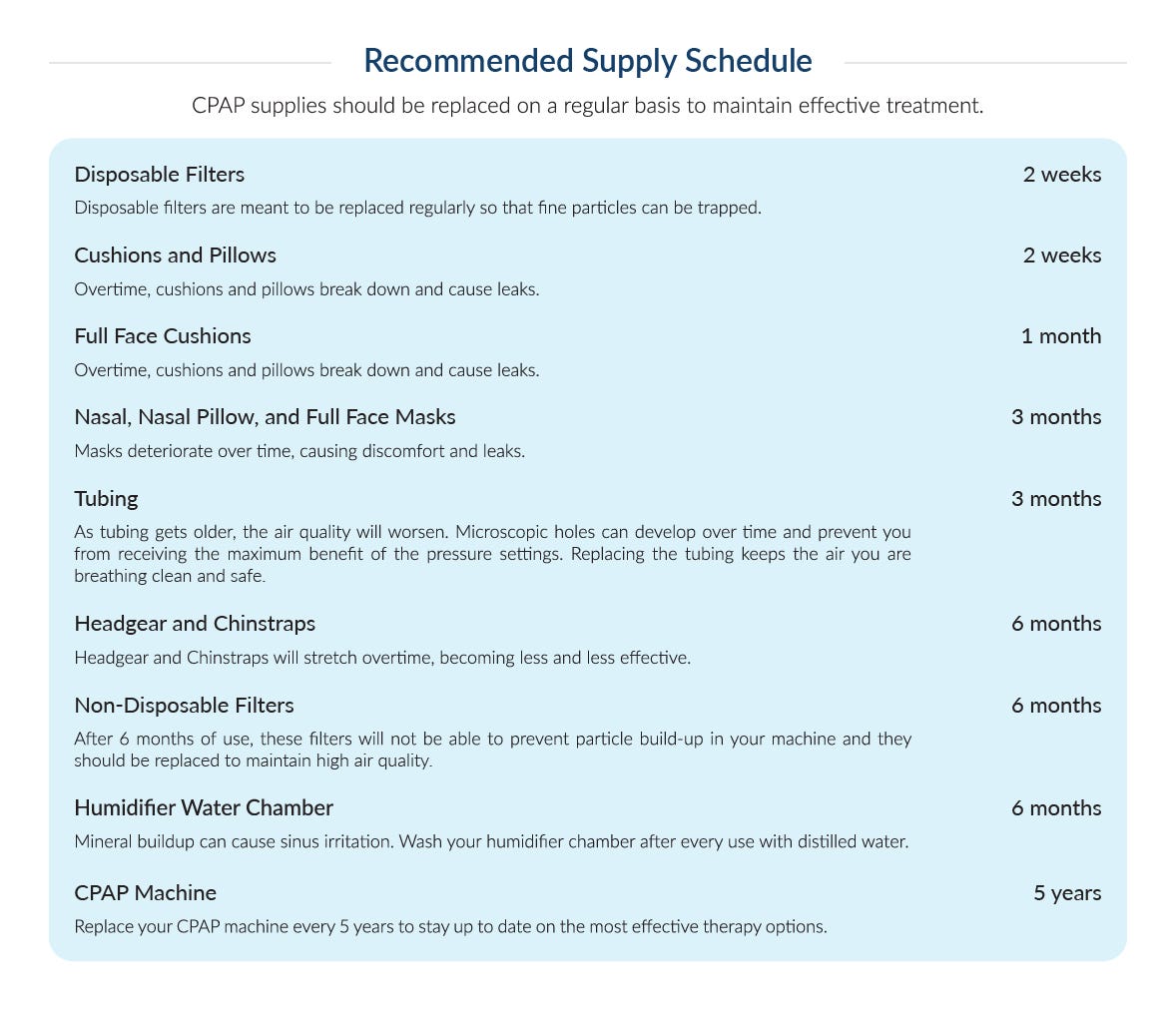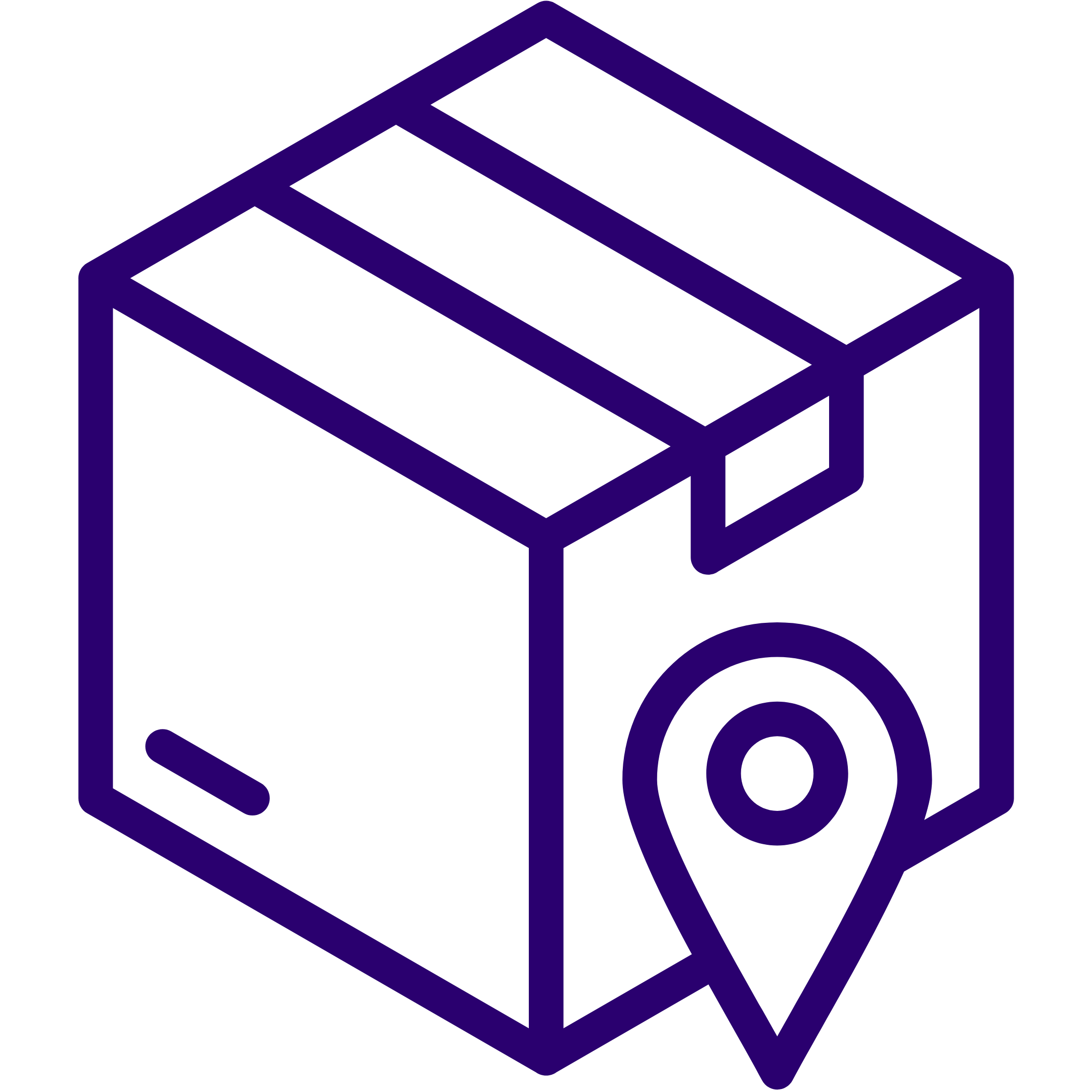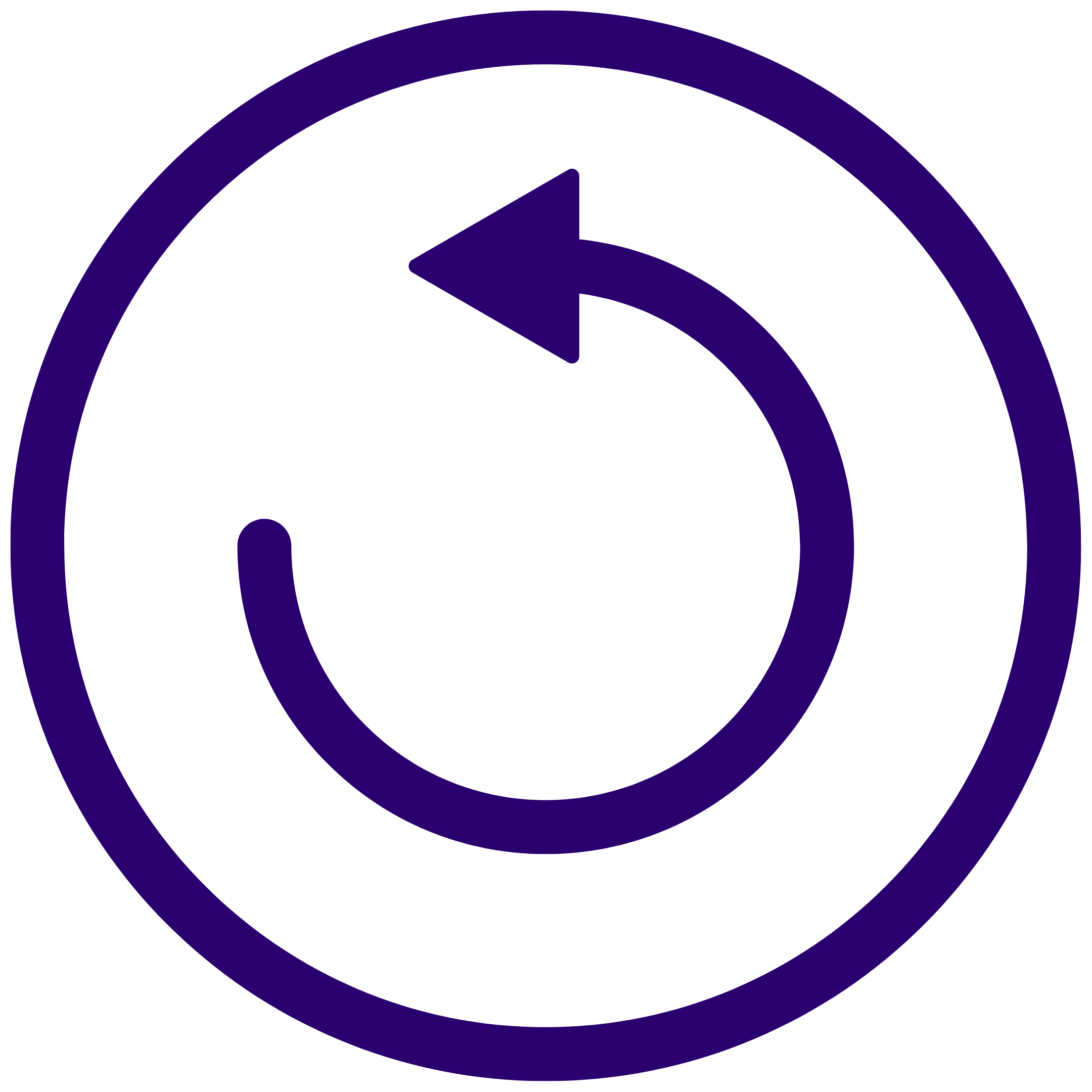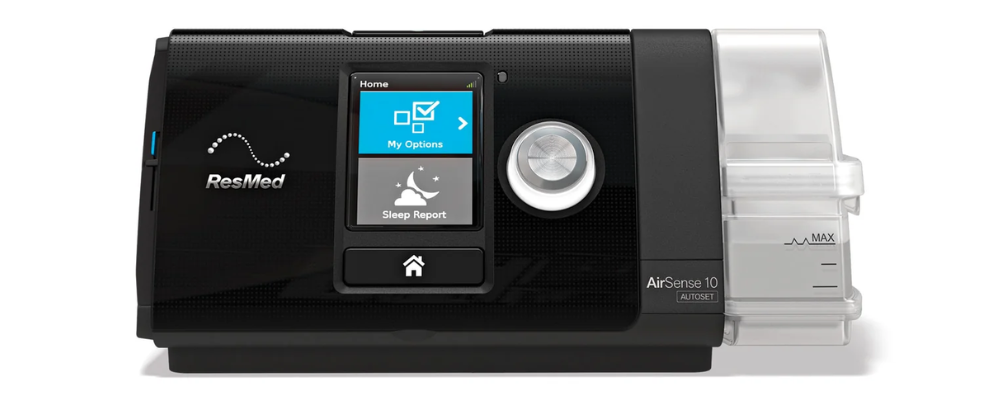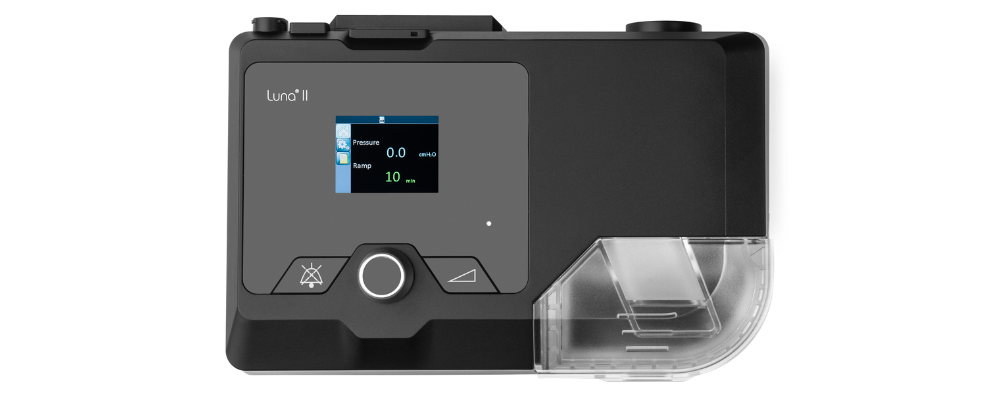CPAP Machine Buyer's Guide
Whether you’re buying your first CPAP machine or your fifth, this guide will get you started on selecting the right machine and getting back to sleep.
We’ll cover what you should look for, how to get it, as well as brands and machines to be aware of. We’ll also answer common questions like “Is it cheaper to buy a CPAP cash or with insurance?” or “Can I get a CPAP machine without a sleep study?”
Along the way, we’ll include helpful links to articles that dive deeper on topics you may want to know more about. Feel free to jump straight to the questions that matter to you…
Table of Contents
- What CPAP Equipment Do You Need vs What's Nice to Have?
- How Do I Choose a Good CPAP Machine?
- The Best CPAP Machines
- Can You Get a CPAP without a Prescription?
- Can You Get a CPAP without a Sleep Study?
- How Do I Get a Prescription for CPAP?
- How Do I Get a Sleep Study?
- How Often Should I Replace My CPAP Supplies?
What CPAP Equipment Do You Need vs What's Nice to Have?
There are endless features, supplies, and accessories to outfit your CPAP machine just the way you like it. Many of these can improve the quality of your sleep or make it easier to adjust to using your CPAP device. But to get started right away you really only need 3 things:
- CPAP Machine - Generates positive pressurized air
- CPAP Mask - Directs pressurized air to your mouth or nose
- Tubing/Hose - Connects your CPAP mask to your CPAP machine (Usually included with the purchase of a CPAP machine)
Once you’ve got the basics down, you’ll find that most CPAP users swear by a few additional items:
- Humidifier - Adds moisture to your airflow. This can help prevent side-effects that occasionally occur with CPAP use, such as dry mouth, sore throat, and nasal congestion.
- Heated Hose - Gently warms your airflow, which can become chilled during pressurization. This makes breathing easier and more comfortable, and helps to prevent a condition called ‘rainout’— where moisture condenses in your tubing and “rains” into your CPAP mask.
How Do I Choose a Good CPAP Machine?
You’re going to be spending a lot of time with your new CPAP machine, so it’s worth making sure you get the right CPAP machine. What makes it “the right one” for you will differ from person to person, but you should consider:
Types of CPAP Machine
If you’re new to CPAP therapy, it may surprise you to hear that there are multiple types of PAP machines. While they all rely on the same positive airway pressure, the way they determine and deliver that pressure differs.
CPAP - Continuous Positive Airway Pressure: The most commonly prescribed type of PAP machine, the standard (or fixed pressure) CPAP delivers a constant flow of air at one consistent pressure all night long. These are generally considered the most effective and affordable treatment for sleep apnea.
BiPAP - BiLevel Positive Airway Pressure: Also called BiLevel CPAP, these machines offer two pressure levels: A higher pressure during inhalation provides the support your airway muscles need, while the second, lower pressure during exhalation allows you to breathe more naturally. BiPAP machines are typically prescribed for patients with additional health concerns, like COPD or a history of heart disease, or who have a more complex sleep disorder, like Central Sleep Apnea.
APAP - Automatic Positive Airway Pressure: Also called AutoCPAP, Auto-Titrating CPAP, or Auto-Adjusting CPAP, these machines use sophisticated algorithms to measure your breathing and adjust your air pressure accordingly. This means that the APAP delivers only the exact amount of pressure you need when you need it. These are often prescribed for people who have difficulty adjusting to CPAP use.
Though the machine can adjust itself, APAP machines are not a substitute for a sleep study, and the range of pressure settings should be prescribed by a doctor or sleep specialist.
Travel CPAP: Travel CPAPs deliver the same airway pressure therapy, and often have the same features as their larger cousins, but with a compact, travel-friendly design! Travel CPAPs are a must-have for OSA patients who frequently travel, but may or may not be designed for everyday use.
Your prescription will need to specify the type of PAP machine you’re allowed to buy, so talk to your doctor or healthcare provider about your preferences.
Learn more about the different types of CPAP machine and who they’re recommended for.
CPAP Machine Features to Consider
When you think of comfort features, you might consider them a luxury, but some of these options can dramatically affect the quality of your sleep. It’s no exaggeration to say that these features can be the difference between continuing your treatment and giving up on your sleep therapy.
As you read through, keep a list of the features that matter to you, then use that when shopping for your CPAP machine.
Ramp
The Ramp feature setting starts your airflow at a lower pressure when you first turn it on, allowing you to fall asleep more comfortably. It then gradually raises the pressure up to your prescribed settings, to make sure you receive the proper airflow when you need it most.
AutoRamp
While the Ramp feature is based on a timer, the Auto Ramp waits to raise your pressure until the machine senses that you’ve fallen asleep– using the same advanced algorithms that power an auto CPAP machine.
Exhalation Relief
This setting reduces air pressure when you exhale, for a more natural and comfortable breathing pattern. Though they typically work the same way, each manufacturer has their own name for this feature. Some of the most popular include:
- ResMed - Expiratory Pressure Relief (EPR)
- Resvent - Intelligent Pressure Relief (IPR)
- DeVilbiss - SmartFlex
Humidifier
Humidification is one of the most popular and most useful CPAP features available. A humidifier adds moisture to your airflow, to help prevent your mouth, airways, and nasal passages from drying out.
Your CPAP device may have an integrated humidifier, or require a separate add-on. Humidifiers generally come in three styles:
- Heated humidifier - Creates vapor by warming the water in the water chamber
- Cold or Passover humidifier - Airflow passes over the water chamber to wick away moisture without adding warmth
- Waterless humidifier - Typically found in travel CPAPs, waterless humidifiers capture moisture from your exhaled breath to condition your airflow.
Sleep Tracking and Bluetooth/Wireless Connectivity
Newer and more advanced CPAP machines can help you and your doctor improve your sleep health by offering personalized reports on your sleep performance.
While CPAP machines have long been able to record usage hours, advances in technology now enable them to monitor apnea events, sleep stage, breathing patterns, and more. And where older machines were limited to using SD memory cards, Bluetooth technology and wifi capability now allows your CPAP machine to connect to your smartphone!
Air Leak Detection
Along with the ability to monitor breathing patterns, some CPAP machines can now detect if air is leaking from your mask, tube, or mouth. The machine can then send an alert, or in some cases, adjust your airflow accordingly!
FAA-Approved for Flight
Since your CPAP is considered medical equipment, airlines are required not to count it as a carry-on item. However, if you’d like to use your CPAP while in flight, you’ll need to choose one that’s FAA-approved. Many travel CPAPs also feature auto-altitude adjustment for just such a reason!
Power Options
If your lifestyle often finds you on the road or off the grid, you’ll want to consider how your CPAP can accept power. While nearly all CPAP devices can use a typical AC outlet, some may also accept DC with or without an adaptor. This can open up possibilities like car chargers, solar panels, CPAP batteries, and even deep-cycle marine batteries!
Brand Names to Know
When it comes to quality, not all CPAP manufacturers are created equally. Remember that your CPAP is a medical device, so while budget is a concern, you’ll want to choose one from a company that’s known for long-lasting, high-quality products, and for supporting their warranty.
There are three very popular names that you’ll encounter most often…
- ResMed - California-based ResMed offers some of the most cutting-edge technology in sleep apnea treatment. Their innovative products tend to carry a pricetag to match their advanced tech, but their quality is well worth the cost.
- Philips Respironics - Debuting the very first CPAP machine for treating obstructive sleep apnea, Respironics had a long history in apnea care even before merging with the healthcare giant Philips. Today, they offer some of the most well-known and trusted CPAP machines, masks, and supplies.
- Fisher & Paykel - With over 50 years in respiratory care, F&P earns their spot with products known for durability and some of the best warranties available. Though they’re most popular for CPAP masks and CPAP supplies, their CPAP machines offer a balance of quality and affordability.
While a trusted name is important, you shouldn’t feel like you have to stick to one of the big brands to get a good machine. You can find top-quality products, often at more affordable prices, from trustworthy brands such as Spirit Medical, Sunset Healthcare, and Roscoe Medical. When choosing these brands, you can feel confident in your purchase.
Will You Buy Your CPAP Machine Out-of-Pocket or Through Insurance?
There are pros and cons to both payment options, but when choosing your machine you should be aware that your insurance company may not cover all brands and models, or even all types of PAP machine.
On the other hand, when you purchase a CPAP machine directly you have the freedom to choose exactly what you want.
Here are some other benefits to consider…
- While an insurer may require you to prove that you’re using your CPAP machine regularly, there’s no compliance requirements when buying out of pocket.
- Your insurer may require a rental period before you own your CPAP, and the rental fees may be on top of the cost of the machine. When you buy a CPAP directly, you own it immediately, and only pay the original cost.
- There’s no waiting for authorization or approval. You can get your CPAP machine and supplies delivered right away!
If you’d like to consider purchasing your CPAP through insurance, visit Aeroflow Sleep to fill out a 3-step qualify form and a Sleep Specialist will reach out to verify your coverage. They’ll connect with your insurance provider directly, then tell you what CPAP machines and supplies you can choose from. If you decide to continue, your personal Sleep Specialist will handle all of the insurance paperwork on your behalf!
The Best CPAP Machines
Now that you know what you’re looking for, here are a few of the best CPAP machines that tick those boxes. These CPAPs consistently earn the best reviews from customers and healthcare professionals alike!
Best Overall - ResMed AirSense 10 with Slimline Tubing
ResMed’s AirSense 10 series includes some of the most widely used CPAP and APAP machines worldwide. The AutoSet is as reliable as it is advanced, and features a powerful algorithm that monitors your breathing and adjusts your airflow accordingly.
The AirSense 10 also include these popular features:
- Daily progress and sleep health reports
- AutoRamp with sleep onset detection starts your therapy with a lower pressure so it’s easier to fall asleep, and then gradually raises to therapy-strength.
- SmartStart automatically starts/stops your airflow when you put on or take off your mask
- Auto-climate and temperature controls adjusts your humidity and temperature to keep you comfortable throughout the night
- Compatible with ResMed’s myAir sleep tracking smartphone app
- Screen adjusts to ambient light so it won’t keep you awake
Best Value CPAP Machine - Luna II Auto by 3B Medical
The Luna II has been a hidden gem for a few years, but gained sudden popularity following the Philips recall. 3B Medical may not have the name recognition of Philips Respironics, but their Luna series CPAP comes standard with some amazing features and a quality build.
First off, real-time air leak detection can alert you to problems with your airflow or mask fit before it affects your sleep. Meanwhile, the machine automatically compensates for air leaks or altitude changes to keep your CPAP therapy safe and effective. (That’s especially good news for CPAP users who like to travel!)
And for those who like to track their progress, you can access personalized sleep health reports (or send them to your doctor) through your choice of optional wifi, 4G cellular modem, QR code, or SD card!
This is all on top of the same features that made the AirSense 10 and DreamStation Auto CPAP so popular– such as auto-adjusting pressure levels, integrated humidifier, and a whisper-quiet motor.
Common Questions About Buying a CPAP
Can You Get a CPAP Machine Without a Prescription?
The short answer is no, you’ll always need a prescription to buy a CPAP, but we make it easy with our Prescription Concierge service– at no extra charge! Your personal Sleep Specialist will contact your doctor directly to obtain, update, or even renew your prescription for you.
The longer answer is that CPAP machines are considered “Class II medical devices”, so Federal law requires a prescription for their sale. To ensure that your sleep therapy is safe and effective, your machine type and settings should always be determined by a healthcare professional.
For help obtaining or renewing your prescription reach out to us at info@cpapsupplies.com or 1-866-298-6482
Can You Get a CPAP Machine Without a Sleep Study?
You do need a sleep study to get a CPAP prescription, but that doesn’t mean you need to spend a night in a sleep lab! An at-home sleep test can be a convenient and affordable way to diagnose sleep apnea from the comfort of your own bed.
Before writing a prescription for CPAP therapy, your doctor or a board-certified clinician will need to review the results of your sleep study to determine your type of sleep apnea, the right type of CPAP machine, and the proper pressure settings for your therapy.
How Do I Get A Prescription For a CPAP Machine?
If you’ve already participated in a sleep study, your personal Sleep Specialist from CPAPsupplies.com will reach out to your healthcare provider to obtain your prescription for you! Our complimentary Prescription Concierge service handles all of the paperwork at no extra charge.
If you haven’t been officially diagnosed with Obstructive Sleep Apnea you’ll need to talk to your healthcare provider about having a sleep study. Based on the results of your study, a prescription for CPAP therapy can be written by a physician (MD or DO), dentist, psychiatrist, physician’s assistant (PA), nurse practitioner (NP), naturopathic physician, or board-certified clinician.
How Do I Get a Sleep Study?
You’ll need to talk to your doctor or healthcare provider about your symptoms of Obstructive Sleep Apnea (OSA). They’ll determine your risk for OSA and the type of sleep study that’s required.
You can ask your doctor if an at-home sleep test (HST) is right for you! HSTs are a convenient and affordable way to diagnose sleep without spending a night in a lab.
How Often Should I Replace My CPAP Supplies?
Along with cleaning your CPAP equipment, you need to replace it on a regular basis. Sure, cleaning your supplies knocks out germs and irritants, but over time they still break down. As your mask touches your skin and absorbs oil, moisture passes through the tubing, minerals build up in the humidifier, and more, the plastic and other materials begin to degrade. As this happens small holes and cracks can begin to form, leading to air leaks and making your supplies more difficult to clean.
Your CPAP supplies should be replaced according to the following schedule:
